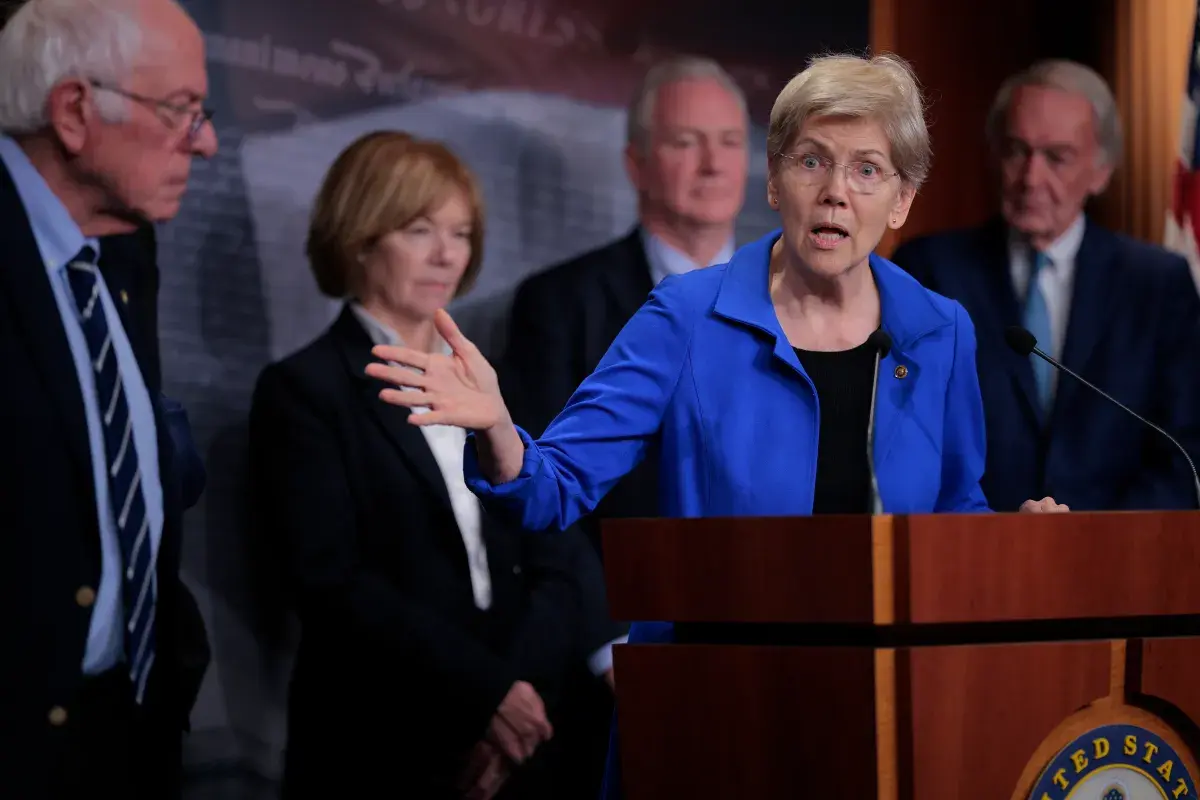Copyright Newsweek

A new bill would increase Social Security payments for Americans, and it’s so far secured more than 10 cosponsors. U.S. Senator Elizabeth Warren (D-Mass.) introduced the Social Security Emergency Inflation Relief Act on October 30. If passed, Social Security and Veterans Affairs benefits would be expanded by $200 per month for six months. Why It Matters Lawmakers cited rising costs under President Donald Trump and his “chaotic tariffs” as reasons beneficiaries should get higher benefit amounts. Currently, the Social Security Administration is facing a funding shortfall that could arrive as soon as the early 2030s and take away roughly 20 percent of monthly payments on average. What To Know The list of cosponsors who have signed on in support of the bill include Senate Minority Leader Chuck Schumer (D-N.Y.), Senate Finance Committee Ranking Member Ron Wyden (D-Ore.), Senators Mark Kelly (D-Ariz.), Angela Alsobrooks (D-Md.), Tammy Duckworth (D-Ill.), Kirsten Gillibrand (D-N.Y.), Chris Van Hollen (D-Md.), Amy Klobuchar (D-Minn.), Alex Padilla (D-Calif.), Tina Smith (D-Minn.) and Peter Welch (D-Vt.). “While Donald Trump sends $40 billion to Argentina, I’m proposing sending American seniors on Social Security an extra $200 a month to offset higher prices. The cost of everything from coffee to beef to health care is up, in large part due Trump’s chaotic tariffs, and Democrats are fighting to deliver some financial relief and lower costs for Americans,” Warren said in a statement. “This new legislation to expand Social Security is an emergency lifeline for seniors struggling to afford Trump’s tariffs and rising inflation.” Schumer added that rising tariffs and reduced healthcare benefits have affected many seniors today. “Seniors face difficult decisions as they see their bank accounts shrinking and the Social Security cost-of-living adjustment is simply not reflective of the current reality. I urge Republicans to join with us to help offset the cost of Trump’s inflationary trade war and give seniors the money they deserve,” Schumer said in a statement. What People Are Saying Alex Beene, a financial literacy instructor for the University of Tennessee at Martin, told Newsweek: "The reasoning behind the proposal links to the continued inflationary pressures many Americans are seeing, and, in Senate Democrats' eyes, part of these rising costs are linked to tariffs. The extra $200 beneficiaries would see in their monthly check would certainly boost their buying power and go some way to easing the inflationary blow many are experiencing. At the same time, with both parties so divided over the federal government's financial priorities, it's unlikely this proposal becomes a reality." Senate Finance Committee Ranking Member Ron Wyden said in a statement: “Seniors, families and Americans with disabilities can’t keep up with the higher costs Donald Trump is inflicting on the country. Trump has fanned the flames of inflation and passed out tax breaks to billionaires, betraying his promises to lower costs yet again. Democrats are fighting back to help seniors afford basic necessities while Trump refuses to lift a finger. Senator Mark Kelly said in a statement: “No one has a harder time dealing with rising costs than seniors who are living on a fixed income. Trump’s tariffs are driving up the price of groceries and almost everything else and Social Security benefits just aren’t keeping up. Putting extra money in seniors' pockets will help them make ends meet while we fight to lower costs for American seniors and families.” Kevin Thompson, the CEO of 9i Capital Group and the host of the 9innings podcast, told Newsweek: "This is largely performative. The OBBBA has already provided an enhanced senior deduction that could greatly outweigh a $200 month increase. Furthermore, a $200 a month increase in benefits could adversely impact some Social Security beneficiaries as it pushes their benefits up in regard to social security taxability." What Happens Next If passed, the extra $200 would be in effect for Social Security checks until July 2026. For 2026, the cost-of-living adjustment will be 2.8 percent, amounting to just $56 extra a month on average for recipients.



